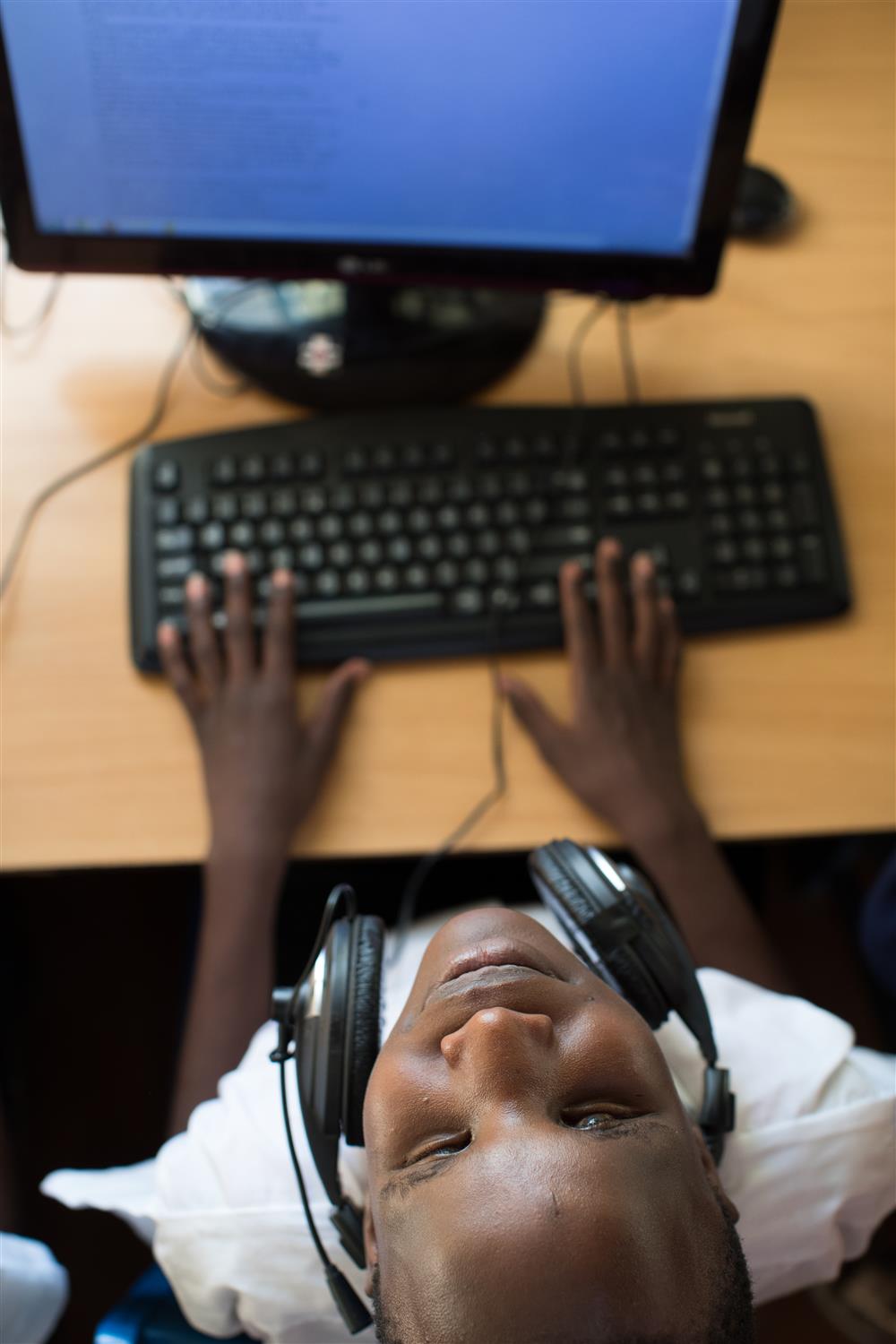Supporting schools to establish assistive technology labs for blind students
- Solution
- inABLE Computer Labs
- Organization
- inABLE
- Country of Implementation
- Kenya
- Region
- Africa
- Subregion
- Subsaharan Africa
- City
- 4 counties in Kenya
- Start Year
- 2009
- First published
- 31.01.2020
Solution details
“When blind students access digital information and communicate with the world, they are more hopeful about their future.” Irene Mbari-Kirika, Founder and Executive Director, inABLE
inABLE is a US-based NGO working across Kenya to increase access to assistive technology for students who are blind or have low vision. It equips specialist schools with assistive technology computer labs, including PCs and software, and provides training for teachers and students. In this way, the labs support students to develop important technological skills. Since 2009, inABLE has enrolled over 7,700 students in these labs and has trained 195 teachers in six specialist schools. Going forward, it is looking to expand to all the specialist schools in Kenya, as well as to replicating the programme in other East African countries.
Problems Targeted
Low access to assistive technology in Kenyan schools means that students who are blind or visually impaired graduate without the digital skills needed to communicate, access information, and secure employment.
Solution, Innovation and Impact
inABLE provides schools with everything needed to set up an assistive technology computer lab. It installs the infrastructure, hardware, software, and accessories, and provides skills training to students and teachers. The organization offers assistive technology skills training ranging from basic skills, such as typing, to more advanced job-focused skills, such as Java programming. The programme also encourages peer learning, whereby advanced students train fellow students. inABLE has developed a computer skills curriculum for blind students aged 6–20, including email, web browsing, productivity software, and HTML web page design. It also provides internships to former students in professions such as assistive technology instruction and HTML coding. Current annual enrolment is 1,500 students. Students demonstrate increased proficiency with various devices, including desktop computers, laptops, and iPads, and they learn how to identify accessible hardware and software. A nationwide survey of visually impaired students conducted by the Georgia Institute of Technology (US), showed that inABLE students had a more positive outlook and greater self-confidence compared to students in other schools.
Funding, Outlook and Transferability
The cost of setting up a lab is approximately $325,000 over a three-year period. inABLE’s income is generated by fundraising from individuals, institutions, businesses, and events. inABLE was launched in 2009 in one school with 100 students, and in 2019 it has grown to eight labs in six specialist schools. The goal is to replicate the model in the remaining specialist schools in Kenya, as well as to adapt the model for other disabilities and low-income countries. In 2017, inABLE signed a Memorandum of Understanding with the Ministry of Education to increase access to education for students with visual impairments through digitalizing learning materials, a computer skills curriculum, and impact research. The organization has also secured a five-year partnership with the Georgia Institute of Technology to measure the programme’s impact.
Media
Pictures
Videos
Downloads
Related information
- Connections
- 2
-
Organization
- People

